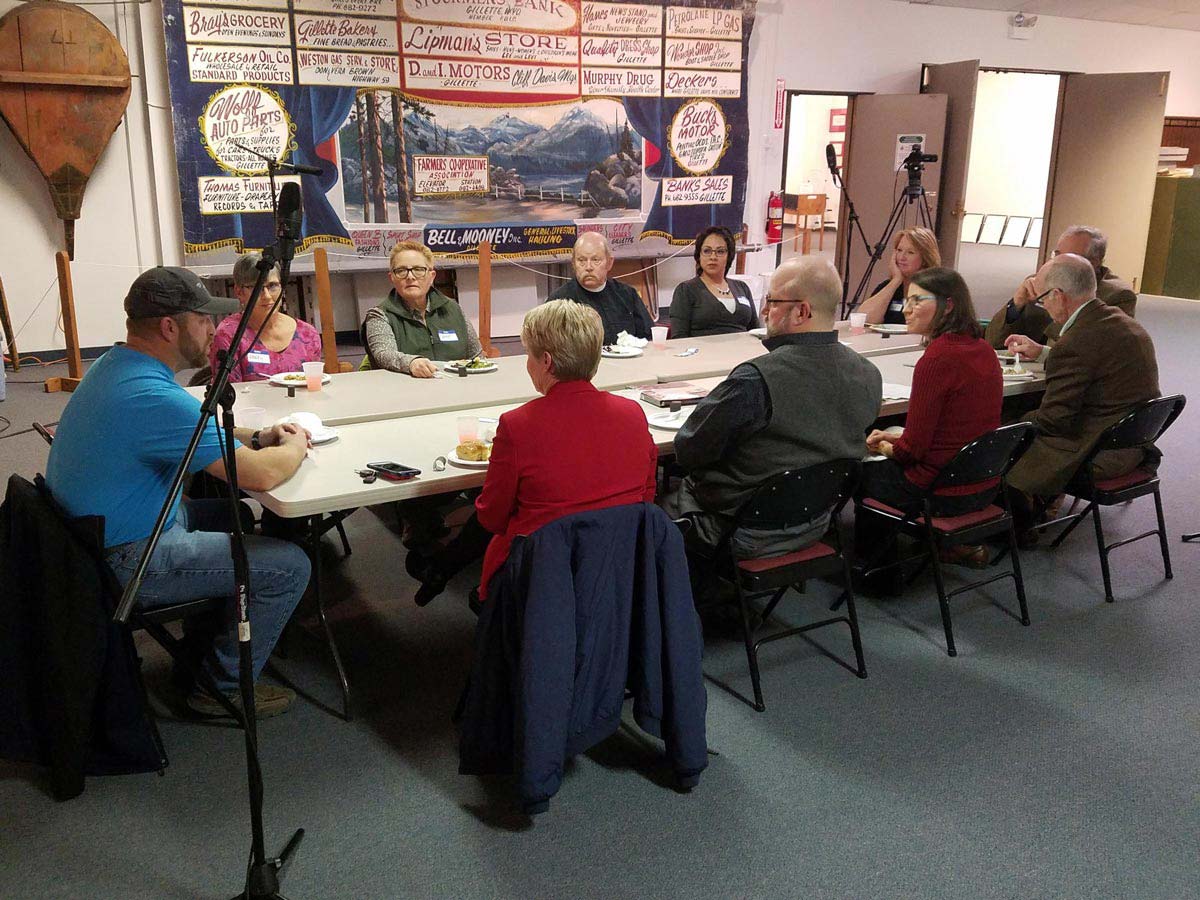Wyoming Public Media ("I Respectfully Disagree")

When Donald Trump won the 2016 presidential election, Wyoming Public Media Reporter/Anchor Melodie Edwards realized that living and working deep in the heartland of Trump support hadn’t helped her anticipate the result. She felt compelled to figure out how to listen to people in communities throughout her state, especially those who did not feel comfortable speaking out about their views.
So the series "I Respectfully Disagree" was born – a way to feature conversations happening across the aisle on a range of challenging issues, and to highlight best practices for making those difficult conversations happen more often. As part of the series, Edwards organized a community discussion in Gillette, a small town in Campbell County, Wyoming, hit hard by job layoffs, homelessness, and poverty. The town had become intensely divided in some respects, with public displays of racist speech, hate crimes against Muslims, and immigration raids. Gillette is located in Campbell County, which had the highest proportion of votes for Trump of any Wyoming county.
In December 2017, Edwards convened a small group to talk about tolerance and building a shared vision of Gillette’s future. Listeners expressed an overwhelming, at times emotional reaction to the story. "People said they were proud to be a Wyomingite," she recalls.
TOOLS/TACTICS:
- Facilitated small-group discussion: Edwards invited ten community leaders, representing the full spectrum of Gillette, to sit around a table to discuss community healing and a shared vision for the future. The conversation was taped (full recording posted online) and edited into a radio piece.
LESSONS LEARNED:
- Careful recruitment: Edwards was intentional about picking sources, particularly conservative voices, and included disparate views to get people out of their echo chambers. She reached out to the local Republican and Democratic parties for recommendations for who should be in the room. The resulting participants represented a spectrum of the community: faith leaders, politicians, social workers, and coal miners. Edwards made sure that everyone would have at least one other “ally” at the table (for example, there was more than one woman, and more than one person from an ethnic minority).
- Framing the conversation: Edwards did a lot of research about civil discourse in order to facilitate the discussions. She carefully cultivated a sense among participants that they were models for the community. In the lead-up to the event, she created an email group for participants, addressing them all as civil discoursers and community leaders, and carefully cultivated a collaborative feel. She set ground rules for how people should talk to each other and made sure these were shared in advance and again at the beginning of the conversation.
- Picking the theme/topic: Leading up to the event, Edwards monitored the local conversation, including letters to the editor of the local paper, to make sure she had her thumb on the pulse. This allowed her to identify the controversies that people felt passionate about, particularly issues that people on the right and left had a shared interest in and might be able to discuss sanely together.